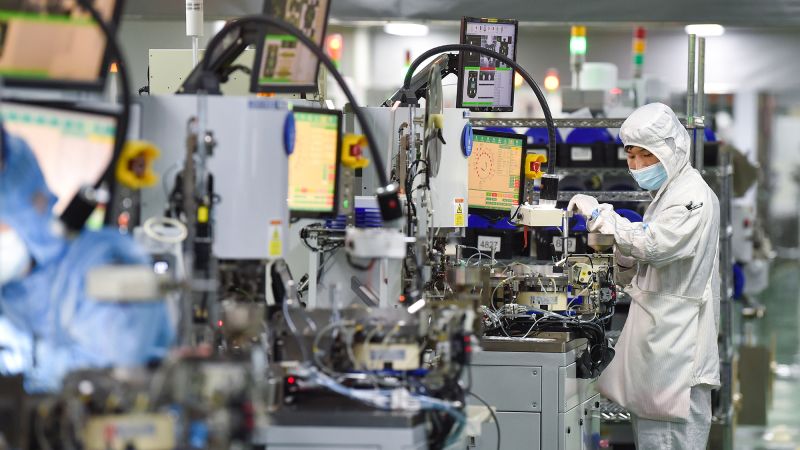China is aggressively pursuing its goal of dominating advanced technologies by establishing its largest-ever semiconductor state investment fund worth $47.5 billion. The fund, supported by major state-owned banks in China, reflects President Xi Jinping’s vision to strengthen the country’s position as a global tech superpower. This investment is part of China’s ambitious Made in China 2025 road map, which aims to make the country a leader in industries such as artificial intelligence, 5G wireless, and quantum computing.
The fund, known as the China Integrated Circuit Industry Investment Fund, is the third phase of a series of investments aimed at bringing China’s semiconductor industry up to international standards by 2030. The investments will primarily focus on chip manufacturing, design, equipment, and materials. Despite the fund’s potential to boost China’s tech capabilities, it has faced challenges, including corruption scandals within the semiconductor industry. A crackdown by the country’s anti-graft watchdog has resulted in investigations and indictments of top figures in state-owned chip companies.
In response to escalating tensions with the US, China has faced increasing restrictions on the export of American chips and chip technology as part of efforts to curb Beijing’s ambitions. The US imposed sweeping export controls in 2022, prohibiting Chinese companies from buying advanced chips and chip-making equipment without a license. In retaliation, China imposed export controls on strategic raw materials critical to the global chipmaking industry. The establishment of the new chip fund not only serves as a defensive measure against Western sanctions but also aligns with Xi’s vision to position China as a global leader in technology.
Despite challenges and restrictions, China has made significant strides in its semiconductor industry. Huawei, a leading Chinese technology company, introduced a new smartphone powered by a 7-nanometer processor manufactured by China’s Semiconductor Manufacturing International Corporation (SMIC). This achievement surprised industry experts who questioned how China could develop such technology despite US restrictions. Xi Jinping has reiterated China’s commitment to scientific and technological development, insisting that no force can impede the country’s progress. However, restrictions imposed by countries like the Netherlands have hindered China’s access to critical technology, such as extreme ultraviolet lithography machines needed for semiconductor production.
In summary, China’s aggressive investment in semiconductor technology through its $47.5 billion fund reflects its determination to establish itself as a global tech superpower. Despite challenges and restrictions, including corruption scandals and export controls, China has made significant advancements in the semiconductor industry. The establishment of the fund is not only a defensive response to Western sanctions but also aligns with Xi Jinping’s long-term goal of positioning China as a leader in technology. Despite obstacles, China remains committed to advancing its technological capabilities and achieving self-reliance in key industries such as semiconductors.


